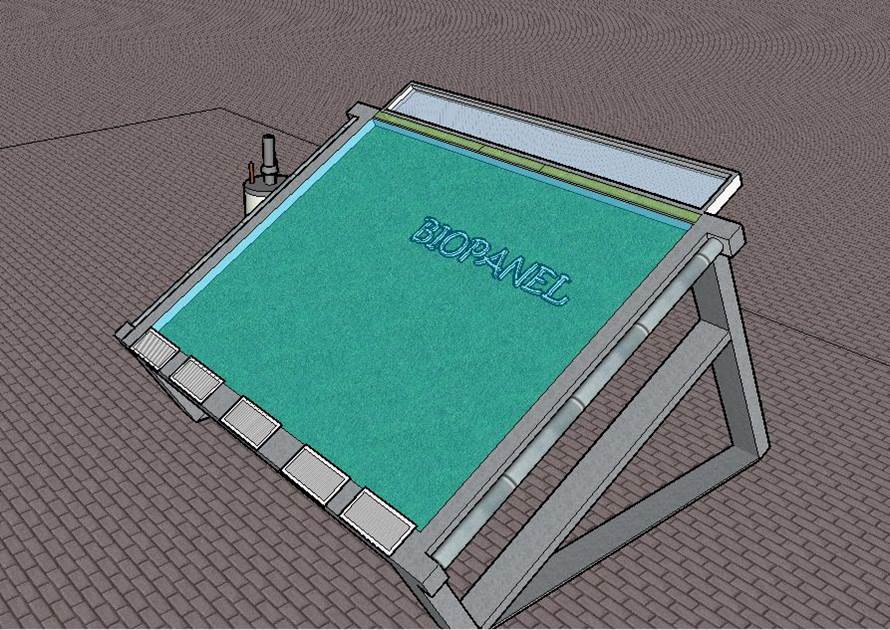Team:BioscienceDragons AZ/Project/Overview
From 2013hs.igem.org
| Line 37: | Line 37: | ||
To achieve these we need to transform the bacteria with two different plasmids containing two new genes. The first plasmid contains the generator for the protein proteorhodopsin which our team will be constructing. This protein serves as light driven proton pump for providing energy to the ''E. coli'' cells. The second plasmid contains the generator for ethanol conversion from glucose, which was created by the '''Nevada 2011 iGEM team''' and was gracefully shared with us for this project. Combined the bacteria will survive on no medium besides solar power and in symbiosis with possibly another bacteria or receiving glucose from an outside source, it will produce ethanol thus effectively “converting sunlight into ethanol”. | To achieve these we need to transform the bacteria with two different plasmids containing two new genes. The first plasmid contains the generator for the protein proteorhodopsin which our team will be constructing. This protein serves as light driven proton pump for providing energy to the ''E. coli'' cells. The second plasmid contains the generator for ethanol conversion from glucose, which was created by the '''Nevada 2011 iGEM team''' and was gracefully shared with us for this project. Combined the bacteria will survive on no medium besides solar power and in symbiosis with possibly another bacteria or receiving glucose from an outside source, it will produce ethanol thus effectively “converting sunlight into ethanol”. | ||
| - | After engineering this construct within the bacteria, the next step will be sharing it with future students at our high school and allowing them to work on the development of a biopanel construct for our bacteria to thrive and produce ethanol. In this manner we hope to produce a new source of alternative energy using the joint abilities of the new plasmids plus the biopanel device which will in time help tackle many of the big problems posed in Arizona and worldwide in regards to air pollution, crop shortages, and energy demands. (See [[Issues]]) | + | After engineering this construct within the bacteria, the next step will be sharing it with future students at our high school and allowing them to work on the development of a biopanel construct for our bacteria to thrive and produce ethanol. In this manner we hope to produce a new source of alternative energy using the joint abilities of the new plasmids plus the biopanel device which will in time help tackle many of the big problems posed in Arizona and worldwide in regards to air pollution, crop shortages, and energy demands. (See [[Bioscience Dragons_AZ/Project/Issues|Issues]]) |
Revision as of 21:27, 21 June 2013
Sunlight Powered Ethanol Production
Overview:
Our project is to engineer E. coli to harness solar energy and produce ethanol from glucose or other alternative sugars. The future application of this manipulation is in the creation of a biopanel. A biopanel will be like a solar panel powered by the E. coli that will convert solar energy into ethanol with a media of glucose provided from another renewable source. The goal is to create a simple and efficient method of renewable energy using daily resources such as sunlight to help in the process.
To achieve these we need to transform the bacteria with two different plasmids containing two new genes. The first plasmid contains the generator for the protein proteorhodopsin which our team will be constructing. This protein serves as light driven proton pump for providing energy to the E. coli cells. The second plasmid contains the generator for ethanol conversion from glucose, which was created by the Nevada 2011 iGEM team and was gracefully shared with us for this project. Combined the bacteria will survive on no medium besides solar power and in symbiosis with possibly another bacteria or receiving glucose from an outside source, it will produce ethanol thus effectively “converting sunlight into ethanol”.
After engineering this construct within the bacteria, the next step will be sharing it with future students at our high school and allowing them to work on the development of a biopanel construct for our bacteria to thrive and produce ethanol. In this manner we hope to produce a new source of alternative energy using the joint abilities of the new plasmids plus the biopanel device which will in time help tackle many of the big problems posed in Arizona and worldwide in regards to air pollution, crop shortages, and energy demands. (See Issues)
 "
"
